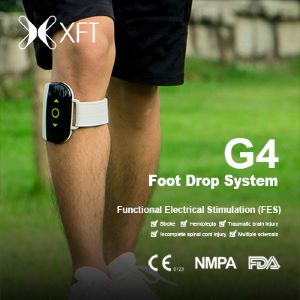Clinical Practice
The many faces of delayed neurocognitive recovery after surgery
Wednesday, November 1, 2023
9:30 AM - 9:36 AM
Location: Station 2

Anahita Amirpour, MSc, RNA (she/her/hers)
Ph.D. Candidate
Karolinska Institutet
Solna, Sweden
Poster Presenter(s)
Research Objectives: To explore postoperative cognitive recovery after major orthopedic surgery with older adult patients.
Design: Mixed-methods study, parallel convergent design.
Follow-up took place 14 days after surgery.
Setting: Karolinska University Hospital, Stockholm, Sweden
Participants: 40 adults ≥ 60 years undergoing major hip replacement surgery.
Interventions: Not applicable
Main Outcome Measures: Neurocognitive performance with the ISPOCD battery (including VVLT, CST,SCW,LDC), patient experiences, with qualitative face-to-face interviews, analyzed with a deductive approach
Results: Five of the included 40 participants were classified as having delayed neurocognitive recovery on the objective cognitive tests defined as a z-score of ≥1.0. There was no statistical difference between the participants having delayed neurocognitive recovery compared to those without, in demographic, surgical and anesthetic factors. The test that had the highest number of participants with decline i.e., a z-score of ≥1.0, was in the cognitive domain Executive function- attention. In the deductive analysis focusing on cognitive domains and psychological factors participants’ experiences shed light on the complex interplay between physical and cognitive performance after surgery.While some participants reported attentional problems immediately after surgery, both during their hospital stay and upon returning home, others did not encounter such issues. Returning to everyday activities such as, reading books and engaging in social activities wasn’t easy. The participants reported absent-minded and had difficulties concentrating on tasks. The participants consistently described challenges with their executive functions, tasks that they had previously initiated and executed with ease, suddenly became challenging. Some patients also reported feeling fatigued, unmotivated, and struggling to find the energy to participate and engage in activities.
Conclusions: In conclusion, our study identified a small proportion of participants with delayed neurocognitive recovery detected in objective cognitive tests. However, the qualitative data showed another reality, where some patients experienced attentional problems, and difficulties concentrating on tasks. The challenges with executive functions were consistently described as the most significant, affecting their motivation and ability to engage in everyday activities. These findings highlight the importance of addressing cognitive function and addressing potential challenges in resuming daily activities as part of postoperative care to ensure a successful recovery.
Author(s) Disclosures: All authors declare that they have no conflicts of interest to disclose.
Design: Mixed-methods study, parallel convergent design.
Follow-up took place 14 days after surgery.
Setting: Karolinska University Hospital, Stockholm, Sweden
Participants: 40 adults ≥ 60 years undergoing major hip replacement surgery.
Interventions: Not applicable
Main Outcome Measures: Neurocognitive performance with the ISPOCD battery (including VVLT, CST,SCW,LDC), patient experiences, with qualitative face-to-face interviews, analyzed with a deductive approach
Results: Five of the included 40 participants were classified as having delayed neurocognitive recovery on the objective cognitive tests defined as a z-score of ≥1.0. There was no statistical difference between the participants having delayed neurocognitive recovery compared to those without, in demographic, surgical and anesthetic factors. The test that had the highest number of participants with decline i.e., a z-score of ≥1.0, was in the cognitive domain Executive function- attention. In the deductive analysis focusing on cognitive domains and psychological factors participants’ experiences shed light on the complex interplay between physical and cognitive performance after surgery.While some participants reported attentional problems immediately after surgery, both during their hospital stay and upon returning home, others did not encounter such issues. Returning to everyday activities such as, reading books and engaging in social activities wasn’t easy. The participants reported absent-minded and had difficulties concentrating on tasks. The participants consistently described challenges with their executive functions, tasks that they had previously initiated and executed with ease, suddenly became challenging. Some patients also reported feeling fatigued, unmotivated, and struggling to find the energy to participate and engage in activities.
Conclusions: In conclusion, our study identified a small proportion of participants with delayed neurocognitive recovery detected in objective cognitive tests. However, the qualitative data showed another reality, where some patients experienced attentional problems, and difficulties concentrating on tasks. The challenges with executive functions were consistently described as the most significant, affecting their motivation and ability to engage in everyday activities. These findings highlight the importance of addressing cognitive function and addressing potential challenges in resuming daily activities as part of postoperative care to ensure a successful recovery.
Author(s) Disclosures: All authors declare that they have no conflicts of interest to disclose.

.jpg)
